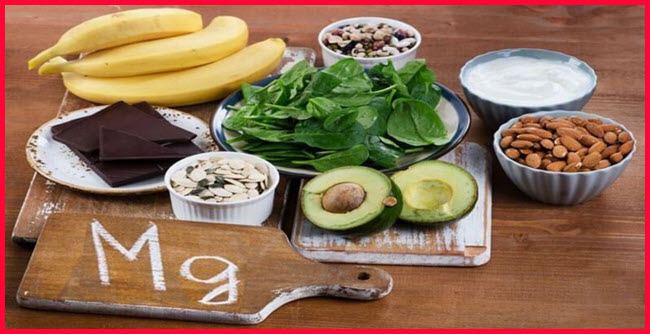What Is The Best Magnesium Supplement
Magnesium has many important rolls in our body.
- It helps with our blood sugar balance.
- Supports optimal blood circulation and blood pressure
- Is involved in cellular energy production
- Helps calm the nervous system.
- Supports pain relief and relaxes muscles
- Is involved with bone density and calcium balance.
- Increases joint and ligament flexibility.
- Supports deep sleep function
- And much more
Over the years research has shown that magnesium is a crucial nutrient supporting more than 300 functions in your body.

Watch Dr. Jockers's video below an discover a lot of great information about magnesium
Magnesium is one of the most important nutrients for human health. I have covered this extensively on my website for years. After reading my articles, many people reach the conclusion that they would like to add a magnesium supplement to their daily regimen. If you go to a local supplement, health food, or online store you will notice there are A TON of different forms of magnesium. These are not all created equal. So, what is the best magnesium supplement for the most health benefits?
.
The proper daily dosage of magnesium:
In the last century, people consumed food grown in nutrient-rich soil and had an intake of around 500mg magnesium from their nutrition every day. Nowadays this source is only 150—300 mg a day.
Symptoms and risk factors of a Magnesium deficiency:
Magnesium is mostly found in the chlorophyll molecule, which means that those who are not eating leafy greens or other magnesium-rich foods but consume mostly processed foods are possible to have a shortage because they’re not getting it from their food.
Medicine such as statins and antibiotics can cause loss of magnesium, as well as reduced sleep, stress and alcohol consumption. All of these factors are resulting in the magnesium deficiencies in almost 50-80 % of Americans.
Some of the early warning signs of magnesium deficiency that you can recognize are:
fatigue, weakness, headaches, and migraines, loss of appetite, vomiting, and muscle spasms. In addition, a constant deficiency can be manifested in feelings of itchy, numbness, seizures, abnormal heartbeats, personality changes, and coronary spasms.
Magnesium rich foods
We already mentioned that the dark-green leafy vegetables are high in magnesium, either eaten raw or juiced. Vegetables with the most magnesium are Kale, Broccoli, Romaine lettuce, Spinach, Swiss chards, Bok Choy, Turnip greens, Beet Greens, Brussels sprouts, Collard Greens.
Other foods that contain lots of magnesium are fruits and berries, nuts and seeds, herbs and spices (cumin, fennel, mustard seeds, parsley), avocados, Fatty fish, Squash, Unsweetened cocoa powder or raw cacao nibs.
Of course there are is more to a great diet than the right amount of magnesium. In Bills new book “Body Reboot” he goes into a lot of information on a proper diet and keto weight loss techniques. Grab a copy while the FREE + shipping offer is still on.
More great information on magnesium can be found in this source article
The feature image came from this article.
